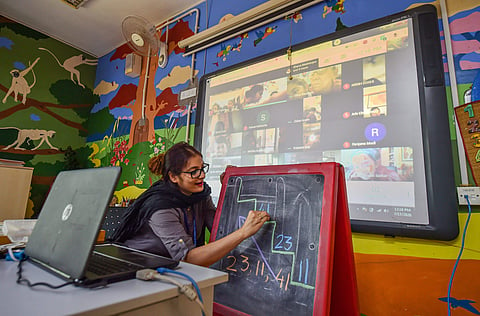

The learning loss of Indian students is mounting as many schools across the country remain closed due to spike in COVID-19 cases. And in a country where 40 to 70 per cent of the children don't have access to a device, online learning is not the only solution.
To highlight how closing schools is not the best option, Teach For India in collaboration with Boston Consulting Group has come out with a report titled India Needs To Learn - A Case for Keeping Schools Open. This is about how other countries and a few states in India have ensured continuity in education despite the raging pandemic.
A global-scale comparison reveals that in the first half of 2020, most schools were shut, though, through subsequent waves, many countries chose to keep their schools open. For example, in countries like Japan, South Africa, the USA, the UK, Portugal, in-person operation in schools was permitted in the year 2021. This was despite 2 to 8x higher disease incidence (or cases per million) when compared to India. Many nations even prioritised keeping schools open and during many instances, this was possible due to decentralising the school opening/closing decision to a school or country-level so that mass school closures can be avoided.
The report argues that transmission and severity of COVID in children are low; though schools reopened in mid-2021, cases did not spike in states like Maharashtra and increasing vaccination penetration strengthens the case for re-opening schools. The four key imperatives the report laid out for the education system in India were: decentralisation of school reopening and closing at ward, Gram Panchyat or school-level; blended learning; strengthening testing, vaccination and safety protocols, and gearing up to bridge learning gaps.
It stated that India needs a massive multi-year catch-up programme requiring strong resource allocation, "mission-mode" focus and resilience planning.
